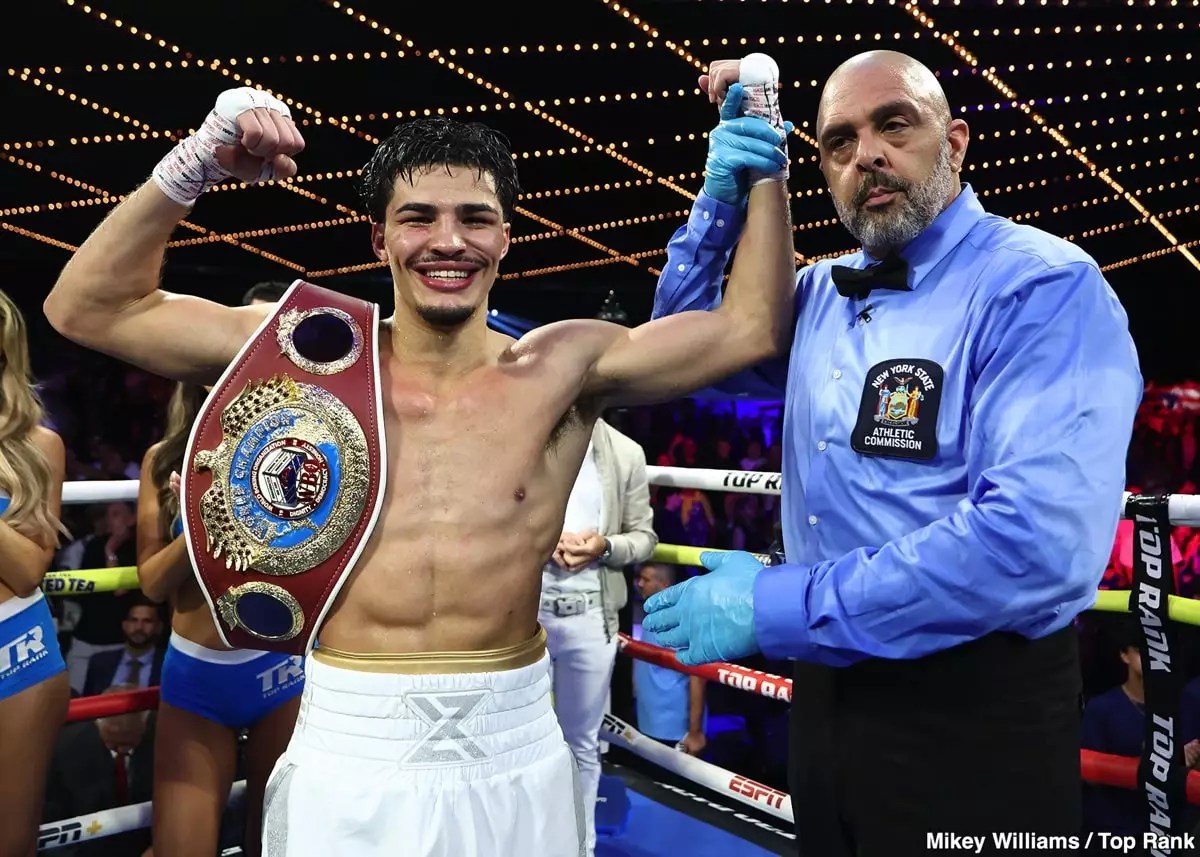In the high-stakes world of boxing, titles and rankings often serve as shiny trophies that mask deeper truths about a fighter’s true caliber. Xander Zayas, at just 22 years old, recently became a WBO junior middleweight champion through a decisive victory over Jorge Garcia—a win that many critics argue was engineered through strong promoter influence rather than a true test of skill. The hype around Zayas’s triumph exemplifies the dangerous dependence on promotional manipulation, making it appear as though the young boxer has accomplished a mountain, when in fact, he’s merely climbed a carefully constructed ladder. Labels and titles, while important, can be misleading; they often reflect strategic positioning rather than genuine merit.
Strategic Promotion vs. Genuine Skill
Vergil Ortiz Jr., a seasoned fighter with nearly a decade in the ring, recently dismissed Zayas’s claim to greatness, mocking him as “food” and questioning his accomplishments. What stands out is not just the trash talk, but the undercurrent of truth: Ortiz’s critique exposes a stark disparity—Ortiz, despite his lack of a title shot and limited resume compared to reigning champions, has been kept in a less advantageous position by his promoters. In contrast, Zayas’s camp, Top Rank, has adeptly navigated sanctioning bodies, funneling him into an almost prearranged title shot. This reveals a harsh reality: boxing’s hierarchy often favors strategic matchmaking over merit, raising questions about the true nature of “achievement” within the sport. Is holding a title achieved through skill, or is it a byproduct of clever promotion?
Uncovering the Myth of Invincibility
What’s particularly intriguing is the gap between perception and reality. Manny Pacquiao, Floyd Mayweather, and other legends built their reputations through challenging fights—a process rooted in taking risks and testing their limits. Today’s champions like Zayas have the luxury of being positioned for success, often fighting opponents with dubious rankings or limited experience. The recent title win by Zayas underscores the importance of scrutinizing the “total package”—a fighter’s skill alone isn’t enough; understanding the career trajectory and promotional influence offers much-needed context. Ortiz’s comments highlight a belief that success should reflect actual achievement, not just the label of being a status holder.
The Future of Boxing’s Hierarchies and Actual Skill
The landscape of boxing is complex, often dictated more by strategic promotion than pure talent. Fighters like Zayas demonstrate that it’s possible to ascend the ranks with judicious matchmaking, but this leaves ongoing debates about the legitimacy of their accomplishments. As fans and analysts, we should question whether titles earned without facing the top-tier competition truly represent excellence. Ortiz’s pointed remarks serve as a reminder that the sport’s integrity rests on fighters testing themselves against the best, not just the most conveniently available opponents. For boxing to evolve, a clearer distinction between promoted success and genuine prowess must be embraced, ensuring that the sport’s stars are celebrated for their true skills and resilience, not merely for being expertly promoted into the spotlight.


Leave a Reply